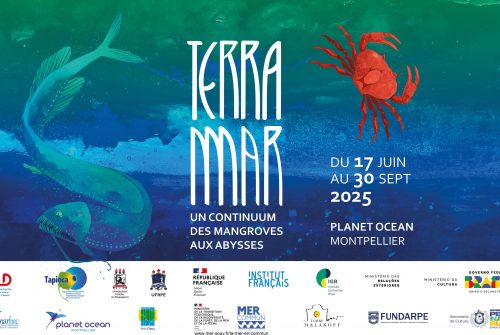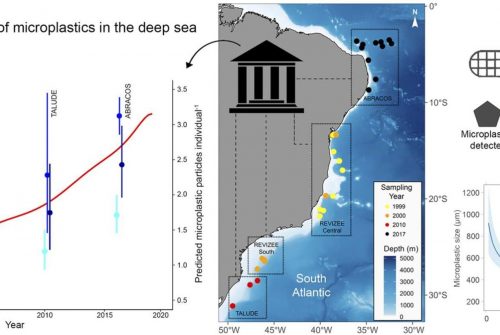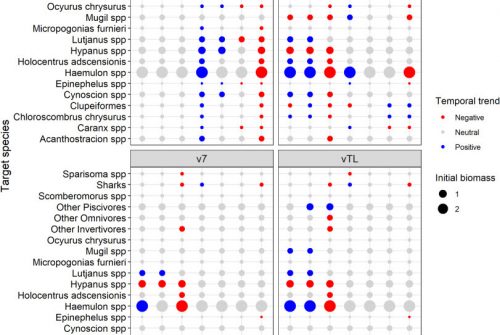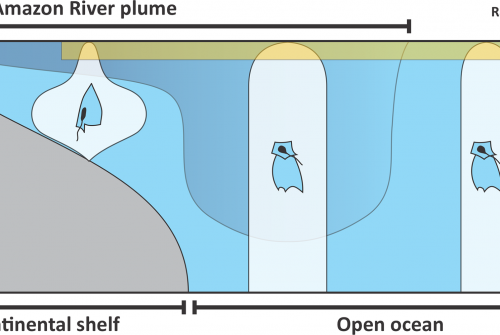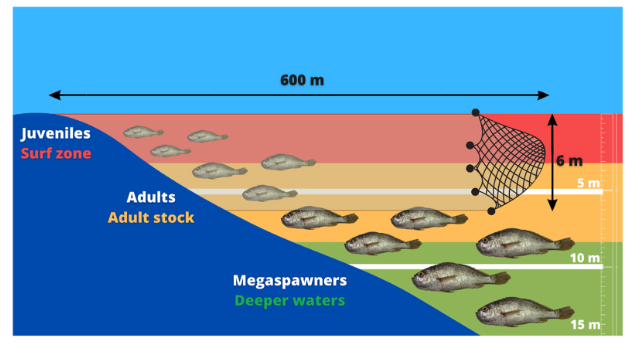
Motorized trawling was banned off part of the Brazilian coast in 1990 due to environmental impacts, thus artisanal fishermen adopted large beach seines as an alternative. No impact assessments have been conducted on any species; therefore, we exam-ined the life history and stock status of shorthead drum, Larimus breviceps, a primary bycatch in tropical shrimp fisheries. Between 2016 and 2017, 969 shorthead drum were collected and analyzed using ELEFAN-based models. Females were larger, more abundant, and older than males. Capture rates of juvenile were high, and no mega-spawners were found. Integrated stock assessment indicated slight overexploitation and growth overfishing. Increased yield per recruit was indicated by high length at first capture. Shorthead drum segregate ontogenetically by size. Growth, mortality, and longevity may be temperature-influenced. We found that beach seine fisheries may impact shorthead drum by population depletion and potential disruptions to reproductive capacity and recommend further studies and management to improve sustainability.
Keywords
depth segregation, growth overfishing, life history, management, mega-spawners, overexploitation
Reference
Santos, L., Vasconcelos-Filho, J., Eduardo, L.N., Lira, A., Craveiro, C., Silva, E.F. et al. (2023) Stock assessment of Larimus breviceps, a bycatch species exploited by artisanal beach seining in Northeast Brazil. Fisheries Management and Ecology, 00, 1– 10.



